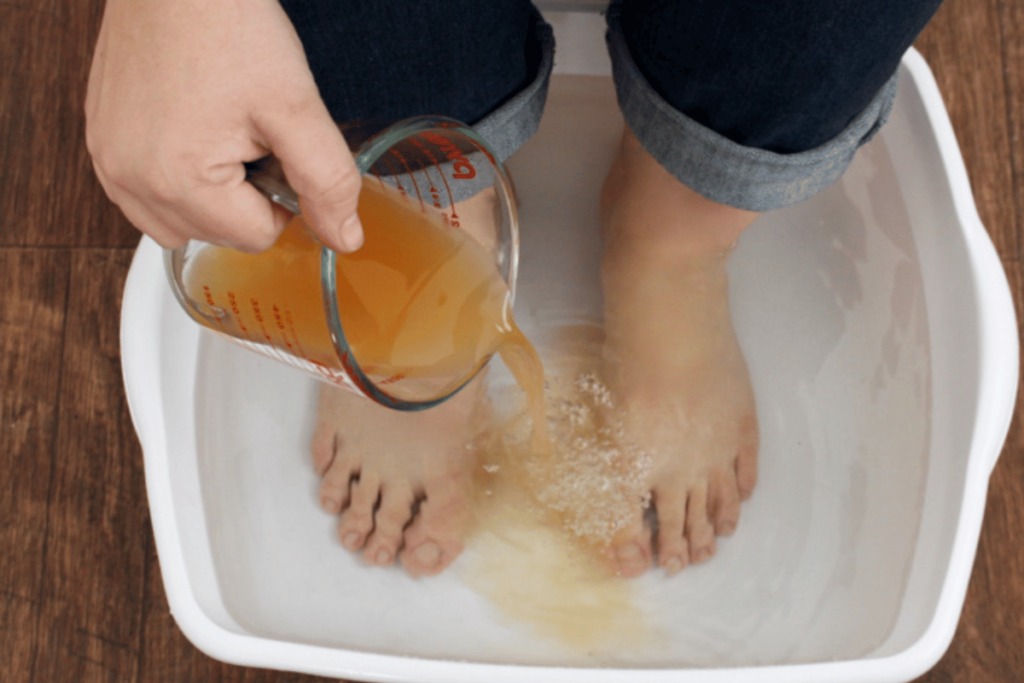The Benefits of Apple Cider Vinegar Foot Soaks: A Natural Way to Refresh and Restore Your Feet
Apple cider vinegar (ACV) has long been celebrated as one of nature’s most versatile home remedies. From aiding digestion to supporting skin health, this simple kitchen staple has found its way into many wellness routines. One of its lesser-known but increasingly popular uses is as a foot soak — a soothing, refreshing, and naturally cleansing treatment that can help keep your feet healthy and comfortable.

What Is an Apple Cider Vinegar Foot Soak?
An apple cider vinegar foot soak is a simple mixture of one part apple cider vinegar and four parts warm water. The feet are soaked in this solution for 15–20 minutes, allowing the acetic acid in the vinegar to interact with the skin’s surface.
While ACV soaks are not a medical cure, many people use them as a natural self-care practice to maintain foot hygiene, reduce odor, and support softer, healthier skin.
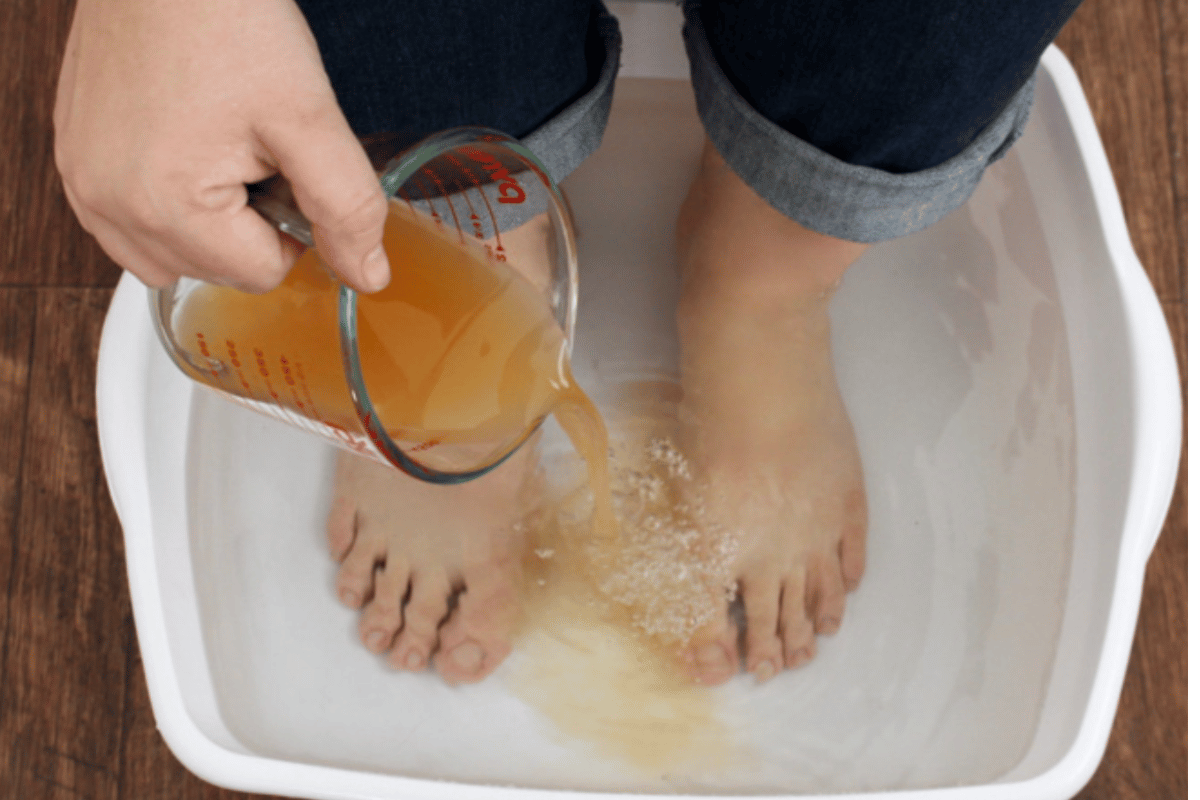
1. Helping Manage Toenail Fungus Naturally
One of the most common reasons people try an apple cider vinegar soak is for toenail fungus or mild cases of athlete’s foot, which are both caused by fungi that thrive in warm, moist environments.
The key compound in ACV, acetic acid, helps create a mildly acidic environment that may make it harder for certain fungi to grow. This acidity is believed to disrupt the protective coating on fungal cells, leaving them more vulnerable and slowing their ability to spread.
Although apple cider vinegar may provide supportive care for mild fungal issues, it should not replace medical treatment for persistent or severe infections. If nail discoloration, thickening, or irritation continues, it’s best to consult a healthcare professional or podiatrist for proper diagnosis and antifungal treatment.
2. Soothing Sore or Tired Feet
After a long day on your feet, especially if you’ve been standing, walking, or exercising for hours, an apple cider vinegar soak can offer a moment of relaxation and relief. The warm water in the soak helps relax muscles, while the natural anti-inflammatory compounds in vinegar can calm mild irritation and swelling.
ACV contains trace amounts of malic acid and acetic acid, both known for their anti-inflammatory and antimicrobial effects. These properties, combined with improved blood circulation from warm water immersion, can help reduce minor soreness and restore comfort to tired feet.
For an extra calming experience, you can add Epsom salt or a few drops of essential oils like lavender or peppermint to your soak. These additions can enhance relaxation while improving the overall foot-care routine.
3. Reducing Foot Odor Naturally
Foot odor often develops due to bacteria and fungi that thrive in warm, moist conditions inside shoes and socks. Apple cider vinegar’s antibacterial properties can help address this issue naturally.
When used regularly, ACV soaks may help neutralize the bacteria responsible for unpleasant smells, while the mild acidity of the soak creates an environment less hospitable to these odor-causing microorganisms.
To maintain fresh-smelling feet:
-
Soak your feet in a 1:4 ACV-to-water mixture once or twice a week.
-
Thoroughly dry your feet afterward, especially between the toes.
-
Alternate shoes daily and use breathable materials to prevent moisture buildup.
This simple routine can help maintain better foot hygiene and prevent recurring odor.
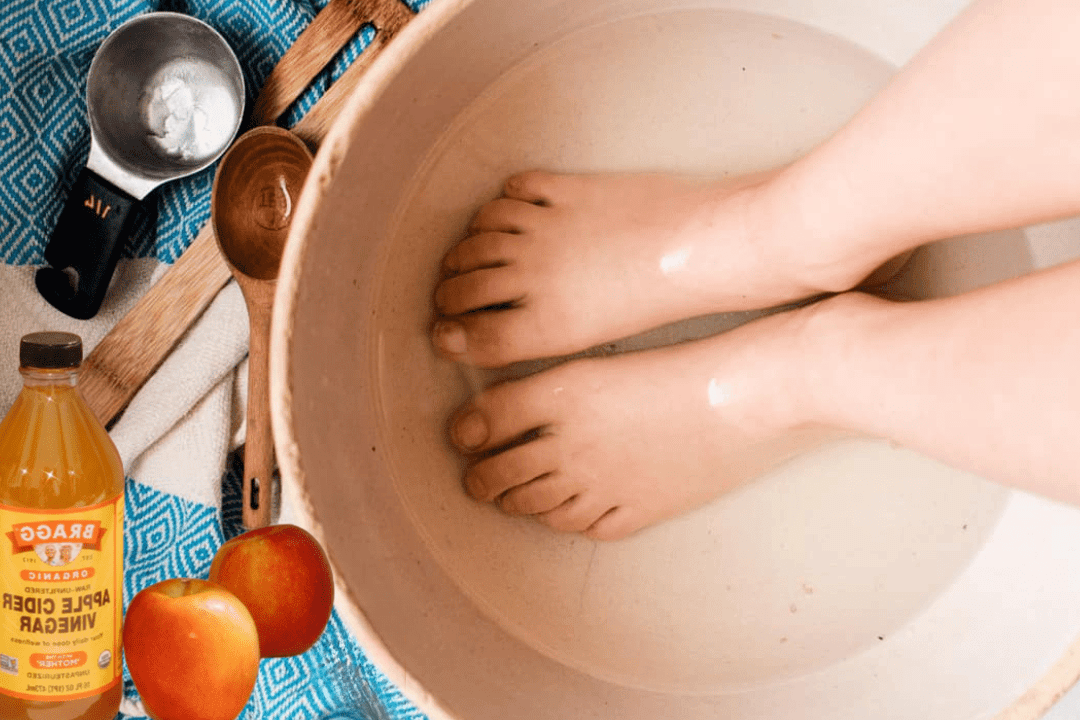
4. Softening and Smoothing Cracked Heels
Cracked heels are a common concern caused by dry skin, friction, or prolonged standing. Apple cider vinegar can help soften and exfoliate dead skin cells, making it easier to remove rough patches.
The acetic acid in ACV gently loosens dry, hardened skin, helping reveal smoother, softer heels. Additionally, its natural antimicrobial qualities may help protect against minor infections that can occur when cracks become deeper or irritated.
Here’s how to use ACV for cracked heels safely:
-
Soak your feet for 15–20 minutes in a 1:4 ACV-to-water mixture.
-
Gently exfoliate with a pumice stone or foot file to remove dead skin.
-
Rinse and dry thoroughly.
-
Apply a moisturizing cream or natural oil (such as coconut oil or shea butter) to lock in hydration.
Regular care can help prevent cracks from returning and keep heels feeling smooth and healthy.

5. Supporting Skin Health and Hygiene
Beyond addressing specific foot issues, apple cider vinegar is also valued for its general cleansing and toning effects on the skin. It acts as a natural astringent, helping to balance skin pH and maintain a clean, refreshed feeling.
By gently removing buildup and impurities, ACV soaks can help maintain smoother skin and reduce the discomfort caused by rough or calloused areas. The mild acidity helps restore the skin’s acid mantle, a natural barrier that protects against bacteria and moisture loss.
6. Precautions and Best Practices
Although apple cider vinegar is natural, it’s still an acid and should be used carefully to avoid irritation. Here are some important precautions:
-
Always dilute the vinegar. A safe ratio is one part ACV to four parts water. Using undiluted vinegar can cause dryness or stinging.
-
Limit soak time to 15–20 minutes. Prolonged exposure can dry the skin.
-
Avoid open cuts or wounds. The acidity may cause discomfort or irritation.
-
Moisturize after each soak to restore hydration and maintain softness.
-
Perform a patch test first if you have sensitive skin.
-
Consult your doctor if you have diabetes, poor circulation, eczema, or any chronic skin condition before trying vinegar soaks.
Used properly, ACV foot soaks can be a safe and beneficial addition to your self-care regimen.
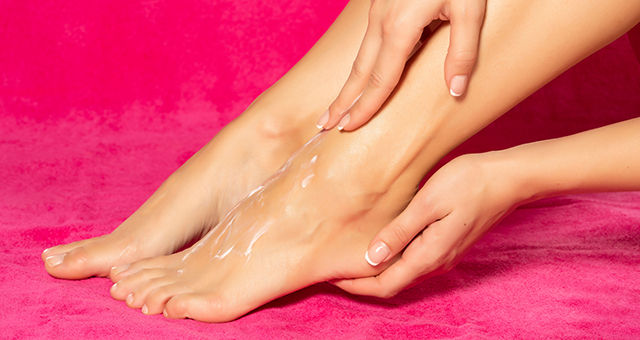
7. Optional Add-Ins for Enhanced Results
You can customize your foot soak for different goals by adding natural ingredients that complement apple cider vinegar’s effects:
-
Epsom salt: Enhances relaxation and helps ease muscle tension.
-
Tea tree oil: Offers additional antimicrobial properties.
-
Baking soda: Can help neutralize odors and soften rough skin.
-
Essential oils (lavender, eucalyptus, peppermint): Provide soothing aromas and skin-calming benefits.
Always use these ingredients sparingly and avoid direct contact with undiluted essential oils.
8. A Simple DIY Recipe
Ingredients:
-
1 cup apple cider vinegar
-
4 cups warm water
-
Optional: 1 tablespoon Epsom salt, a few drops of essential oil
Instructions:
-
Mix all ingredients in a large basin.
-
Soak your feet for 15–20 minutes.
-
Rinse with clean water and dry thoroughly.
-
Apply a nourishing moisturizer to seal in softness.
This quick and easy routine can be done once or twice a week for ongoing foot maintenance.
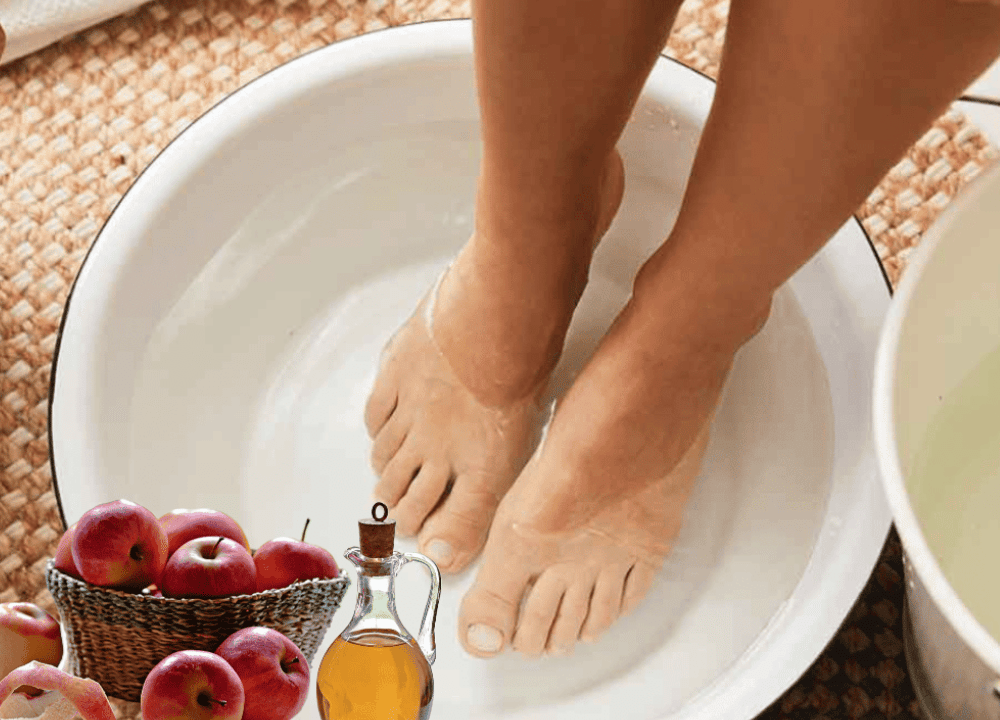
Final Thoughts: Natural Care for Happier Feet
An apple cider vinegar foot soak is a simple yet effective way to care for your feet using natural ingredients. From softening skin and reducing odor to offering mild antifungal and anti-inflammatory support, it provides a refreshing experience that combines comfort and hygiene.
While ACV soaks can complement good foot care, they are not a replacement for medical treatments when needed. Persistent fungal infections, pain, or skin damage should always be evaluated by a healthcare provider.
When used safely and consistently, apple cider vinegar can be a gentle, affordable, and eco-friendly addition to your wellness routine — helping your feet feel clean, refreshed, and revitalized after every soak.

